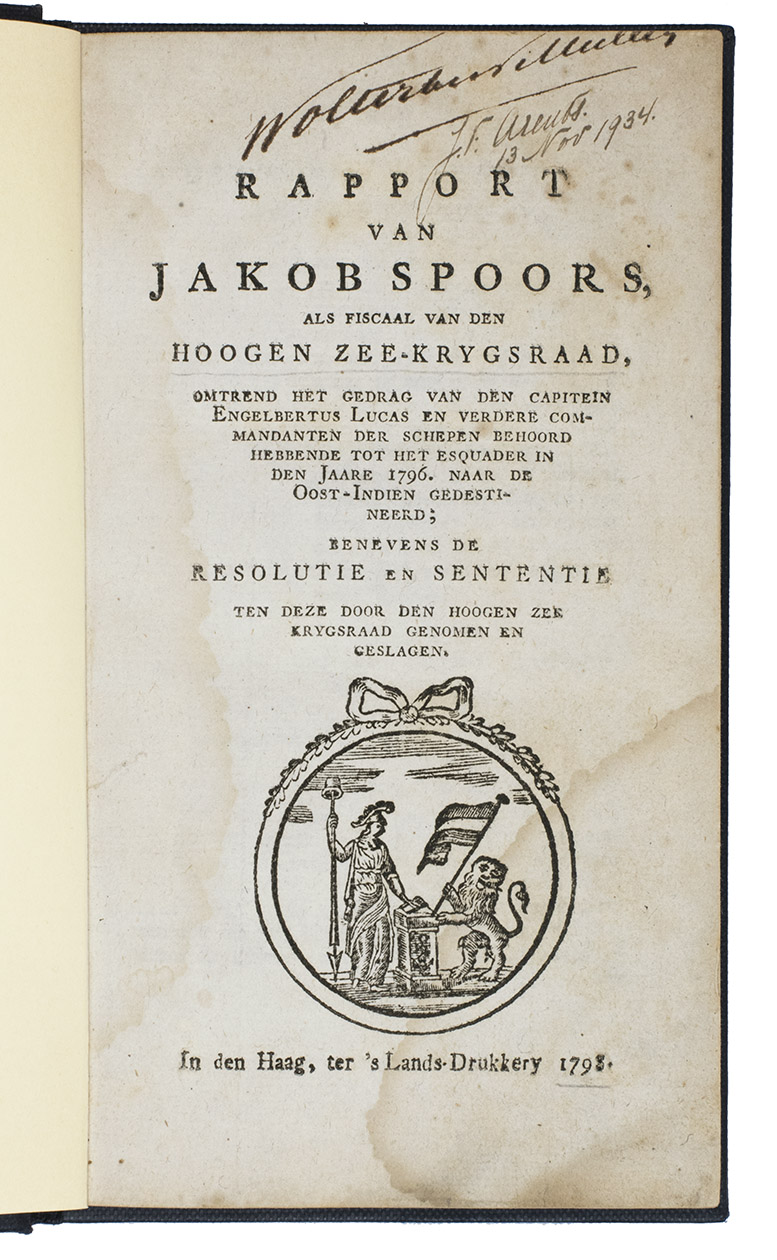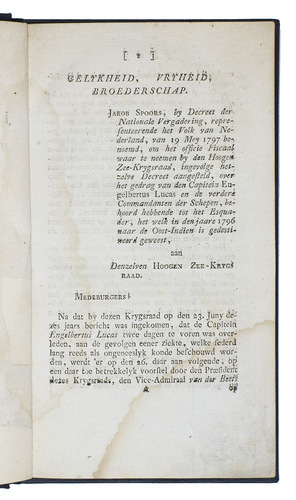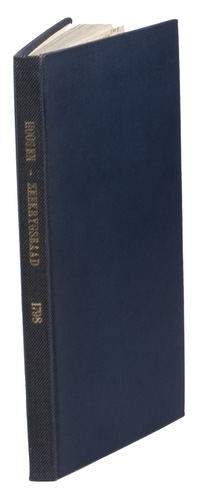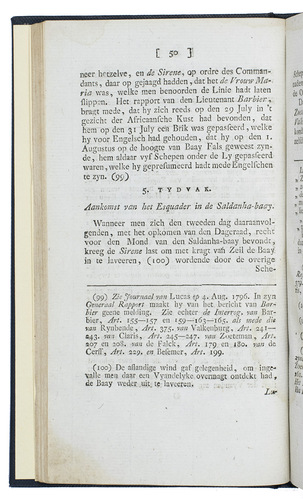SPOORS, Jakob.
Rapport van Jakob Spoors, als fiscaal van den Hoogen Zee-krygsraad, omtrend het gedrag van den capitein Engelbertus Lucas en verdere commandanten der schepen behoord hebbende tot het esquader in den jaare 1796. Naar de Oost-Indien gedestineerd; benevens de resolutie en sententie ten deze door den Hoogen Zee Krygsraad genomen en geslagen.
The Hague, 's Lands-Drukkery, 1798. 8vo. With the woodcut great seal of the Batavian Republic - the French-dominated republican government of the Netherlands from 1795 to 1806 - on the title-page (an allegorical female figure representing Freedom, with spear and freedom hat and with her hand on a book on a stand, next to the Dutch lion holding a Dutch flag). Modern blue cloth, title in gold on spine, new endpapers. [2], 151, [1] pp.
€ 1,250
Published report of the prosecutor Jacobus Spoors on the 1796 surrender to the British Royal Navy of a Dutch expeditionary force sent to recapture the Dutch Cape Colony. The affaire sent shockwaves through the Batavian Republic and the stately publication on offer here presents the official printed edition of the report concluding the inquiry into the matter by the prosecutor Jacobus Spoors.
Rear-Admiral Engelbertus Lucas, the figure at the core of this affair had moored nine warships with about 2000 marines under his command in the Bay of Saldanha, about 125 km up the west coast of Africa from Capetown. Lucas was taken entirely by surprise as he suddenly found himself hemmed in from both sides: British troops had first taken control of the city of Saldanha and in rapid succession, a British fleet under the command of Admiral George Elphinstone blocked the bay and effectively trapped the Dutch fleet. Surrender was the only viable option for Lucas and after only one day, the Royal Navy incorporated all Dutch warships into its own service and the seamen, most of them Germans, joined either the Royal Navy or the British East India Company. Elphinstone brought the warships into his squadron at Cape Town. While Lucas had little choice in his decision at that moment, he of course bore the brunt of the blame for leading the fleet into the trap.
Lucas and the Dutch officers later returned to the Netherlands. The surrender was a traumatic experience that caused widespread popular outrage in the Batavian Republic. Upon their return, the Admiral and his commanders had to face the enquiry by the naval high court. Prosecutor Jacobus Spoors conducted an inquiry that deposed all witnesses. On the basis of Spoorss report, the court decided to lay the main responsibility for the surrender on Lucas, and to acquit the other officers. Ironically, Lucas had died in June 1797, a few days before the trial was set to start. He never faced the consequences of his poor performance as high naval officer.
In good condition, with only a faint water stain in the first 14 and last 34 pages. STCN 202114317.
Related Subjects:







